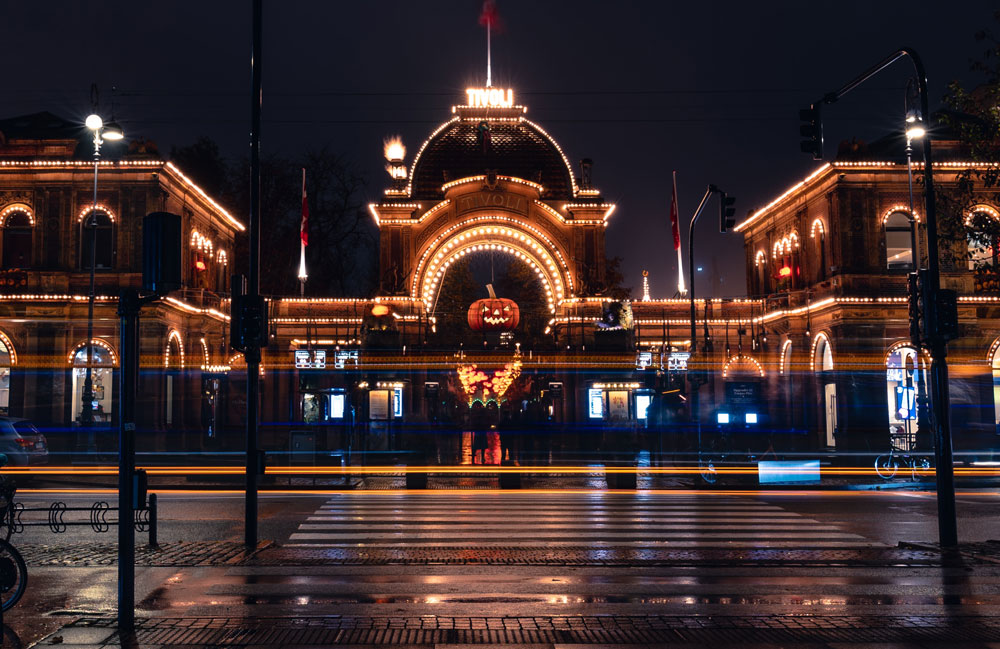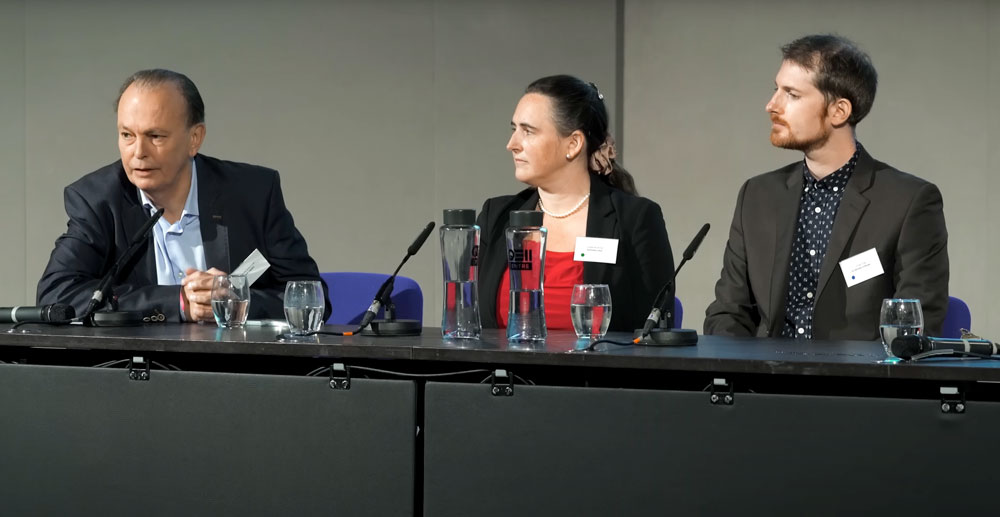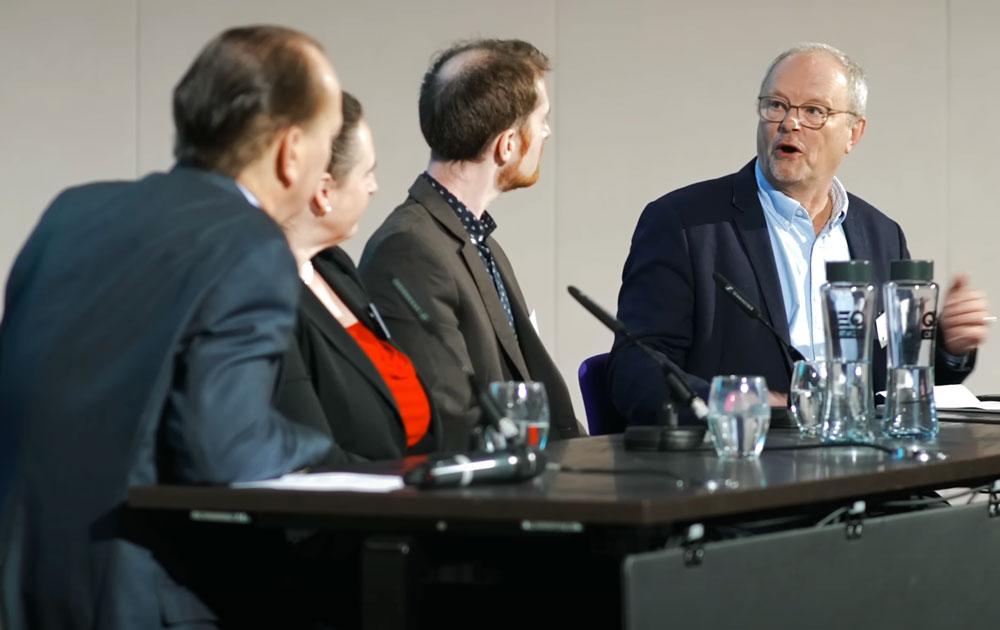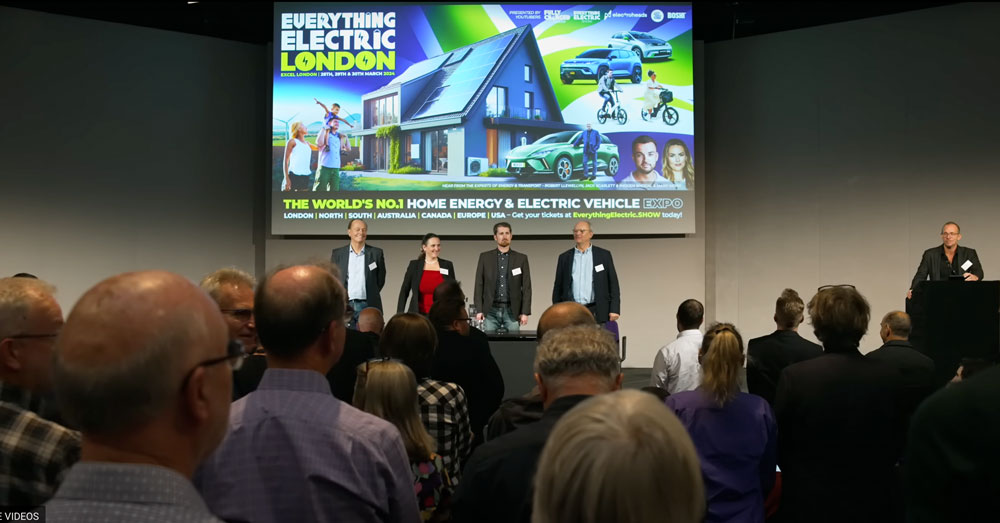The UK's environmental strategy, particularly its plans to transition from gas boilers to heat pumps, has recently been under intense scrutiny. A report from The Guardian in July 2023 revealed how lobbying by gas boiler manufacturers is influencing the UK's approach to adopting more sustainable heating options. This blog post delves into the complexities of this issue, exploring the challenges and potential impacts of these lobbying efforts on the UK's climate goals.
The Controversy Around Heat Pumps: Heat pumps, an eco-friendly alternative to traditional gas boilers, are central to the UK’s strategy to reduce carbon emissions in home heating. However, the transition faces significant resistance. The Guardian's report highlights how gas boiler manufacturers are lobbying to slow down or dilute these plans, arguing that the shift to heat pumps is too costly and logistically challenging for most households.
The Lobbying Efforts and Their Impact: The lobbying efforts by gas boiler interests have raised concerns among environmentalists and policymakers. Critics argue that succumbing to these pressures could derail the UK's climate targets, particularly its commitment to achieving net-zero carbon emissions by 2050. The influence of these lobby groups threatens to slow the adoption of greener technologies, potentially locking the UK into a longer reliance on fossil fuels.
Economic Arguments Versus Environmental Necessity: The crux of the debate lies in balancing economic considerations with environmental imperatives. While the initial cost of installing heat pumps is higher than replacing gas boilers, the long-term benefits – both financially and environmentally – are significant. Heat pumps offer a cleaner, more sustainable means of heating homes, reducing carbon emissions and helping combat climate change.
The Path Forward: To successfully navigate this transition, it is crucial for the UK government to address these challenges head-on. This includes providing adequate subsidies or financial incentives to lower the barriers to heat pump adoption, investing in training for installation professionals, and launching public awareness campaigns to educate homeowners about the benefits of heat pumps.
Conclusion: The resistance from gas boiler manufacturers to the UK's heat pump plans underscores the broader challenges faced in the transition to green technologies. Overcoming these hurdles is essential for the UK to meet its climate commitments and pave the way for a sustainable, carbon-neutral future. It will require a concerted effort from the government, industry, and the public to ensure that environmental priorities are not sidelined by vested interests.
You can read more here:
Understanding the Climate Crisis: A Northants Carbon Literacy Perspective
The recent BBC Panorama documentary, "Why Are We Still Searching for Fossil Fuels" (aired on 13/11/2023), presents a stark reminder of the urgent need for widespread carbon literacy, especially in communities like Northamptonshire. This documentary, available on BBC iPlayer and YouTube, delves into the alarming reality of our ongoing reliance on fossil fuels, despite the clear and present dangers of climate change.
The Alarming Truths Revealed
The documentary highlights a disturbing trend: despite global commitments to reduce carbon emissions, the world is witnessing an increase in fossil fuel exploration and consumption. Researchers in Germany have found that out of 700 energy companies investigated, 675 are planning to open new oil and gas fields. This expansion is in direct contradiction to the International Energy Agency's advice for keeping global temperature rise to 1.5°C.
In the UK, the situation is equally concerning. New oil and gas fields are being opened, and there are plans for a new coal mine in Cumbria. This expansion raises a critical question: if we are committed to meeting climate targets, why are we still increasing fossil fuel production?
The Local Impact in Northamptonshire
For communities like Northamptonshire, the implications of these global trends are significant. As a region, we must understand the impact of our energy choices and the importance of transitioning to sustainable alternatives. Northants Carbon Literacy is at the forefront of educating our community about these issues, emphasising the need for a shift in our energy consumption patterns.
The Role of Carbon Literacy
Carbon literacy involves understanding the carbon impacts of our activities and making informed choices to reduce our carbon footprint. It's about recognising the connection between our everyday actions and the broader climate crisis. The Panorama documentary underscores the urgency of this knowledge, showing how continued fossil fuel reliance exacerbates climate change.
Moving Forward: Action and Awareness
The documentary serves as a call to action for individuals and communities alike. In Northamptonshire, we have the opportunity to lead by example, embracing carbon literacy and sustainable practices. This involves:
-
Educating Ourselves and Others: Through initiatives like Northants Carbon Literacy, we can spread awareness about the importance of reducing our reliance on fossil fuels.
-
Supporting Sustainable Energy: Advocating for and adopting renewable energy sources is crucial in mitigating the impact of climate change.
-
Community Engagement: Engaging in local environmental initiatives and supporting policies that promote sustainability.
-
Personal Responsibility: Each of us can contribute by making more environmentally friendly choices in our daily lives.
Conclusion
The BBC Panorama documentary is a stark reminder of the challenges we face in combating climate change. However, it also highlights the power of informed communities in driving change. In Northamptonshire, through enhanced carbon literacy and proactive measures, we can contribute to a more sustainable future, aligning our actions with the urgent need to protect our planet.
This is available on BBC iPlayer until approximately October 2024.
Introduction
In November 2023, a team from Northants Carbon Literacy embarked on an enlightening journey to Copenhagen, Denmark. The purpose of this visit was to witness firsthand the innovative use of Bockatech's EcoCore reusable cups at the renowned Tivoli Gardens. This experience not only showcased a remarkable example of sustainable practice but also opened up possibilities for other parks and businesses to adopt similar eco-friendly initiatives.
The EcoCore Revolution at Tivoli Gardens
 Tivoli Gardens, a historic amusement park in the heart of Copenhagen, has always been a frontrunner in embracing sustainable practices. Their latest venture involves the use of Bockatech's EcoCore reusable cups, a move that significantly reduces waste and carbon footprint. These cups, made from advanced polypropylene and designed for up to 1000 uses, represent a leap forward in environmental stewardship.
Tivoli Gardens, a historic amusement park in the heart of Copenhagen, has always been a frontrunner in embracing sustainable practices. Their latest venture involves the use of Bockatech's EcoCore reusable cups, a move that significantly reduces waste and carbon footprint. These cups, made from advanced polypropylene and designed for up to 1000 uses, represent a leap forward in environmental stewardship.
Why EcoCore?
-
Sustainability: EcoCore cups are both reusable and recyclable, addressing the pressing issue of single-use plastic waste. Their unique foam technology ensures a lower carbon footprint compared to traditional single-use cups.
-
Durability and Practicality: With a lifespan of up to 1000 uses, these cups offer a practical solution for busy amusement parks like Tivoli Gardens. They withstand the rigours of repeated use and cleaning, making them a durable choice.
-
User Incentives: Tivoli Gardens has implemented a deposit system where visitors can return used cups to designated machines around the park for a refund. This system not only encourages recycling but also enhances the visitor experience by promoting responsible consumption.
The Northants Carbon Literacy Perspective
During our visit, we observed the seamless integration of EcoCore cups into the daily operations of Tivoli Gardens. The ease of use and the positive response from visitors were particularly impressive. This initiative aligns perfectly with our mission at Northants Carbon Literacy to promote carbon awareness and sustainable practices.
Broader Implications for Parks and Businesses
The success of EcoCore cups at Tivoli Gardens serves as a blueprint for other amusement parks and businesses that rely heavily on disposable cups. By adopting this model, they can:
-
Reduce Environmental Impact: Transitioning to reusable cups can significantly cut down on waste and carbon emissions, contributing to a healthier planet.
-
Enhance Brand Image: Adopting sustainable practices reflects positively on a business’s commitment to environmental responsibility, potentially attracting eco-conscious customers.
-
Economic Efficiency: While the initial investment in reusable cups may be higher than disposable ones, the long-term savings in waste management and purchasing costs are substantial.
Challenges and Solutions
Implementing a system like Tivoli Gardens' EcoCore cups does come with challenges, such as the initial investment and the need for infrastructure to collect and clean the cups. However, these challenges can be mitigated through:
-
Government Incentives: Local or national government support in the form of grants or tax breaks can ease the financial burden of adopting sustainable practices.
-
Public Awareness Campaigns: Educating the public about the benefits of reusable cups can increase participation and support for such initiatives.
-
Collaboration with Technology Providers: Partnering with companies like Bockatech can provide technical support and customised solutions to fit specific needs.
Conclusion
Our visit to Copenhagen and Tivoli Gardens was a revelation in sustainable practices. The use of Bockatech's EcoCore reusable cups is not just an environmental initiative; it's a statement of responsibility and a step towards a more sustainable future. We at Northants Carbon Literacy believe that this model can and should be replicated by other parks and businesses worldwide to make a significant impact on our planet's health.
The Shocking Truth About EVs
In a recent episode of the Fully Charged Show, ex-Top Gear presenters joined forces to address and dismantle common misconceptions surrounding electric vehicles (EVs). The episode, titled "Ex-Top Gear Star Sets Electric Car 'Experts' Straight. Shocking Truth About EVs!" was filmed in Westminster before a live audience, comprising politicians, press, and motorists. Northants Carbon Literacy attended the event and here's our takeaways from the day.
 The Misinformation Ramp-Up
The Misinformation Ramp-Up
The presenters were:
- Robert Llewellyn, Founder of Stop Burning Stuff and of TV's Red Dwarf and Scrapheap Challenge.
- Quentin Wilson, Founder of Fair Charge, from TV's Top Gear and a motoring journalist.
- Lorna McAtear, National Grid Fleet.
- Dr. Euan McTurk, Electrochemist, Plug Life Consulting.
- Dan Caesar, CEO Fully Charged Show.
The event highlighted the increasing spread of misinformation about EVs. This misinformation includes exaggerated stories about car park fires, bridge collapses, and battery explosions. Such narratives have been destabilising the transition to electric vehicles, creating unnecessary fear and confusion among potential EV buyers.
Independent Campaign: #StopBS
The show launched the #StopBS (Stop Burning Stuff) campaign, an independent initiative funded by individuals, not corporations. This campaign aims to counteract the misinformation by providing accurate, real-world experiences of EV users. The presenters emphasised the importance of separating truth from fiction in the current climate of misinformation.
Debunking Myths
The panel tackled several myths head-on:
1. EVs and the Environment
- Reduced Emissions: Electric vehicles (EVs) significantly reduce greenhouse gas emissions compared to traditional petrol or diesel cars. Studies, such as those by Hannah Ritchie from Our World in Data, support this, showing that EVs are indeed more environmentally friendly over their lifecycle.
- Energy Efficiency: EVs convert a higher percentage of electrical energy from the grid to power at the wheels, making them more efficient in terms of energy use.
2. Battery Concerns
- Advancements in Technology: Modern EV batteries are more efficient, long-lasting, and environmentally friendly. The discussion highlighted the reduction in cobalt intensity, a critical factor given the ethical and environmental concerns associated with cobalt mining.
- Cobalt-Free Batteries: The move towards cobalt-free batteries, like those used by Tesla, represents a significant step in making EVs more sustainable and less dependent on problematic materials.
3. Fire Risks
- Lower Incidence of Fires: Contrary to the common myth, EVs are less likely to catch fire than their fossil fuel counterparts. The Swedish Civil Contingencies Agency's data indicates that electric cars catch fire less often than fossil fuel cars.
- Safety in Design: EVs undergo rigorous safety testing, and their design often includes advanced safety features to prevent and contain fires should they occur.
4. Infrastructure and Grid Capacity
- Grid Readiness: Concerns about the electricity grid's inability to support the growing number of EVs are often overstated. National Grid reports have shown that with proper management and investment, grids can easily handle the increased demand.
- Smart Charging: The development of smart charging solutions, which optimise charging times and power usage, further alleviates pressure on the grid.
5. Cost and Accessibility
- Decreasing Costs: The initial cost of EVs is becoming more competitive with traditional vehicles. This change is driven by the decreasing cost of batteries and increased production scale.
- Total Cost of Ownership: When considering the total cost of ownership, including fuel and maintenance, EVs can be more economical in the long run. Studies, such as those referenced by the World Economic Forum, support this, showing that owning an EV in Europe can be cheaper than many anticipate.
Audience Feedback
 Audience participation played a significant role in highlighting the real-world experiences and perceptions of EV users. Here are some key moments from the event:
Audience participation played a significant role in highlighting the real-world experiences and perceptions of EV users. Here are some key moments from the event:
-
EV Ownership Experience:
- When asked to stand up if they drive a battery electric vehicle, a significant number of audience members stood up, showcasing the growing adoption of EVs among the public.
- Further, when asked to stand up if they drive a battery electric vehicle and have no intention of going back to a combustion engine vehicle, again, a large majority of the audience stood up. This response indicates a high level of satisfaction and commitment to EVs among current users.
-
Media Representation vs. Lived Experience:
- The audience was asked to stand up if they believe that the mass media representation of battery electric vehicles bears little resemblance to their lived experience of them. Almost everyone stood up, suggesting a disconnect between media narratives and the actual experiences of EV drivers.
-
Impact on UK's Economic Prospects:
- Lastly, when asked to stand up if they believe that the mass media representation of battery electric vehicles only harms the UK's economic prospects, once again almost all audience members stood up. This indicates a concern among EV users and enthusiasts that misinformation in the media could negatively impact the country's progress in adopting cleaner, more sustainable transportation technologies.
These responses from the audience members at the event underscore the huge gap between public perception and media portrayal of EVs, as well as the enthusiastic support for electric vehicles among those who have adopted them.
Conclusion
The Stop Burning Stuff (#STOPBS) event serves as a crucial platform for clarifying misconceptions about electric vehicles. By bringing together experienced voices in the automotive industry, the show aims to educate and inform the public, paving the way for a more informed and rational discourse about the future of transportation.
Introduction: Electric Vehicles (EVs) are often at the center of debates on sustainable transportation. Despite their growing popularity, several myths and misconceptions persist, clouding public perception. To navigate towards an environmentally-friendly future, it's crucial to discern facts from fiction. This blog, drawing upon an exhaustive fact-check by Carbon Brief, aims to dispel some of the most widespread myths about EVs, offering a clearer picture of their role in our transition to sustainable mobility.
- Myth: EVs Aren't Truly Zero-Emission Vehicles One of the most persistent misconceptions is that EVs simply shift emissions from the vehicle to the power station. However, studies show that even when accounting for electricity generation, the overall emissions of EVs are significantly lower than those of traditional combustion engine vehicles throughout their lifecycle. Furthermore, as electricity generation becomes greener with the increasing adoption of renewable energy sources like wind and solar, the gap in emissions between EVs and conventional vehicles is set to widen further, reinforcing the role of EVs in a low-carbon future.
- Myth: EV Batteries Have a Short Life and are Bad for the Environment Many believe that EV batteries are detrimental to the environment and have a limited lifespan. However, with advances in lithium-ion technology and battery management systems, modern EV batteries are not only lasting longer but also becoming more efficient and sustainable. Battery recycling and repurposing initiatives are also emerging, further mitigating the environmental impact. Repurposed batteries find a second life in various applications, such as stationary energy storage, thereby extending their usability beyond the vehicle's life.
- Myth: EVs Aren't Suitable for Long Journeys Concerns about the range and charging infrastructure often deter potential EV users, especially for long-distance travel. However, with the latest advancements, many new EV models now offer substantial range, sufficient for most daily needs and long trips. The ongoing expansion of charging networks across the UK and Europe, including rapid charging stations, is steadily overcoming this hurdle, making EVs increasingly practical for longer journeys.
- Myth: EVs are Too Expensive for Average Consumers The initial cost of EVs is often highlighted as a barrier. While the purchase price can be higher than that of conventional cars, the long-term economic benefits of EVs are significant. When accounting for the lower operational and maintenance costs, as well as various government subsidies and tax incentives, EVs can be more cost-effective over their lifespan. Additionally, as battery costs continue to fall and manufacturing processes become more efficient, the purchase price of EVs is expected to reach parity with traditional vehicles in the near future.
- Myth: The Grid Can't Handle Mass EV Adoption There's a misconception that a surge in EV usage will overwhelm the power grid. However, energy experts and grid operators are actively planning for the integration of EVs into the energy system. Innovations such as smart charging, which allows EVs to charge during off-peak hours, and vehicle-to-grid technology, where EVs can supply energy back to the grid, are promising solutions that enhance grid stability and efficiency.
- Myth: EVs Don't Have Enough Variety or Performance The early days of EVs saw limited choices and concerns about performance. However, the EV market has evolved rapidly, offering a wide range of models catering to various preferences and needs. From compact city cars to high-performance luxury models, the variety in the EV market is ever-expanding. In terms of performance, EVs are known for their quick acceleration and smooth driving experience, thanks to instant torque delivery from electric motors.
Conclusion: Electric vehicles stand at the forefront of the shift towards sustainable transportation. Dispelling myths and understanding the factual advantages of EVs is crucial in making informed decisions. As technology advances and misconceptions are cleared, EVs are set to play an integral role in reducing our carbon footprint and paving the way for a cleaner, greener future in transportation.
Kettering General Hospital's Sustainable Approach to Food Waste Management
Kettering General Hospital, a significant healthcare provider in Northamptonshire, United Kingdom, has made a groundbreaking move in managing its food waste. By installing the WasteMaster 400 system in July 2017, the hospital has revolutionized its approach to handling the 1,500 meals served daily, demonstrating a commitment to environmental sustainability and operational efficiency.
Overcoming Food Waste Challenges
The hospital, catering to over 371,000 patients per year with a staff of 3,300, faced significant challenges with its previous food waste disposal method. The maceration system used a considerable amount of water, frequently blocked drains, and increased maintenance activities. The introduction of the WasteMaster 400, as initiated by the hospital's Waste and Sustainability Manager, Robin Packman, marked a significant shift in their waste management strategy.
The Green Solution: WasteMaster 400
The WasteMaster system offers an innovative solution to food waste by reducing it by 80%, resulting in a dry residue that can be repurposed for producing green electricity or as a fertiliser. This technology operates without the need for water or drainage connections, requiring only a simple three-phase power supply and an air vent.
Quantifiable Benefits of the WasteMaster System
- Reduction in Food Waste Weight: The hospital achieved a 50-tonne reduction in food waste weight in the first 12 months.
- Cost Savings: There was a 35% reduction in food waste disposal costs.
- Water Conservation: The system led to a 70,000-litre annual reduction in water consumption, with projected savings of over £45,000 in drainage and sewage costs over the contract period.
- Operational Efficiency: The installation requires minimal infrastructure, and the process is simple, with a one-button operation, improving hygiene and reducing the likelihood of vermin in the waste area.
Positive Outcomes for the Hospital and Environment
- Enhanced Staff Morale: The introduction of the WasteMaster system has positively impacted the staff's motivation and perception of waste management. Seeing food waste being turned into something useful has been a source of motivation for the staff.
- Environmental Impact: The system contributes significantly to reducing greenhouse gas emissions, supporting the hospital's environmental targets.
- Repurposing Waste: The transformation of food waste into resources like green electricity exemplifies a circular economy approach in healthcare settings, turning waste into valuable resources.
Kettering General Hospital's adoption of the WasteMaster 400 system showcases a successful integration of innovative technology in healthcare waste management. This initiative not only addresses operational challenges but also contributes significantly to environmental sustainability, setting an example for other healthcare institutions to follow.
Source: https://www.greenecotec.com/kettering
Electoral Commission Imprint: Promoted by D.Dell on behalf of Northamptonshire Green Party c/o 38 Waverley Rd, Kettering, NN15 6NT

